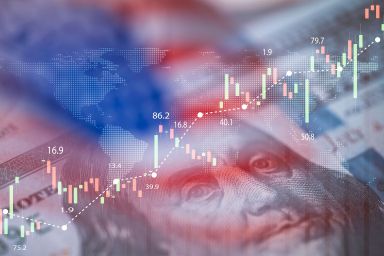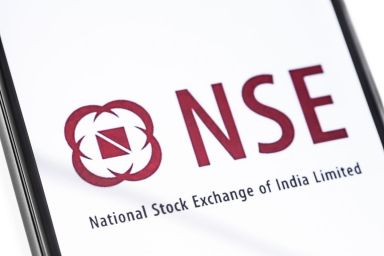Featured articles

Why Michael Burry just sold all his tech stocks
Michael Burry has just exited a nearly $100 million position on Nvidia that he opened earlier this year.
14:42, 9 October 2025

Gold forecast: Third-party price targets
Gold (XAU/USD) is currently trading at $3,982.94 (as of 6:12pm UTC, 7 October 2025), after briefly crossing $4,000 per ounce for the first time during the session.
14:43, 9 October 2025

How does Elon Musk impact cryptocurrency prices?
In cryptocurrency markets, few individuals command as much attention as Elon Musk. The CEO of Tesla and SpaceX’s tweets, Tesla and Dogecoin announcements, and public statements can trigger periods of heightened volatility, with shifts in buying and selling pressure across digital assets.
13:29, 30 September 2025

easyJet shareholders: who owns the most EZJ stock in 2025?
Ownership can provide insights into a company’s direction and stability. For easyJet (EZJ), the mix of institutional investors, insiders and public shareholders provides insight into its position within Europe’s aviation market.
13:23, 24 November 2025

Berkshire Hathaway stock split: will Warren Buffett’s successor change course?
Berkshire Hathaway has long been recognised for its disciplined approach to capital management, share structure and corporate governance. These principles have reflected Warren Buffett’s investment philosophy, which emphasises patience and long-term value creation.
11:53, 24 November 2025

Berkshire Hathaway shareholders: who owns the most BRK stock?
Berkshire Hathaway remains one of the world’s most closely followed companies, widely recognised for its long-term value investing approach.
11:35, 24 November 2025

How to trade in a bear market: CFD trading strategies
Periods of falling prices can challenge even experienced traders, yet they remain an integral part of the market cycle.
11:16, 24 November 2025

SPY, IVV and VOO: Be careful – not all S&P 500 ETFs are the same
Many ETFs aim to mirror the performance of the S&P 500, giving traders and investors exposure to the same broad market benchmark. Yet not all S&P 500 ETFs operate in the same way. Subtle differences in structure, costs and liquidity can influence how each fund performs in practice.
14:38, 24 November 2025

Markets in the Fog: Why Rate Uncertainty Still Rules the Narrative
Market volatility remains high as investors look to get further clues on what the Federal Reserve could do at the December meeting
11:29, 24 November 2025

10 trading tips to make the most of the Capital.com mobile app
Explore how to get the most out of the Capital.com mobile app with these practical trading tips. From managing risk and setting protective orders to using AI-driven insights and educational tools, discover how to trade more efficiently and stay informed.
09:43, 21 November 2025

How overseas investors can access the NSE Nifty 50 (India 50) Index
Learn how to access the NSE Nifty 50 Index (India 50) as an overseas investor – via ETFs, mutual funds, CFDs and derivatives.
10:47, 19 November 2025

Gold outlook: focus on rate cut odds as sentiment improves
Renewed hopes of a rate cut from the Federal Reserve drives the dollar and yields lower, allowing precious metals to regain some upside
14 hours ago

Is gold a good investment in 2025?
Gold has long been regarded as a store of value and a potential hedge against periods of uncertainty. In the current market landscape, it continues to draw interest from both traders and long-term investors.
12:14, 24 November 2025

Markets in the Fog: Why Rate Uncertainty Still Rules the Narrative
Market volatility remains high as investors look to get further clues on what the Federal Reserve could do at the December meeting
11:29, 24 November 2025

10 trading tips to make the most of the Capital.com mobile app
Explore how to get the most out of the Capital.com mobile app with these practical trading tips. From managing risk and setting protective orders to using AI-driven insights and educational tools, discover how to trade more efficiently and stay informed.
09:43, 21 November 2025

Markets in the Fog: Why Rate Uncertainty Still Rules the Narrative
Market volatility remains high as investors look to get further clues on what the Federal Reserve could do at the December meeting
11:29, 24 November 2025

10 trading tips to make the most of the Capital.com mobile app
Explore how to get the most out of the Capital.com mobile app with these practical trading tips. From managing risk and setting protective orders to using AI-driven insights and educational tools, discover how to trade more efficiently and stay informed.
09:43, 21 November 2025

US Dollar dips as odds of a rate cut increase despite strong jobs data
The delayed September US jobs data shows a picture of resilience, but markets increase the odds of a rate cut in December
14:07, 20 November 2025

Best currency pairs to trade at night
What are the pros and cons of night trading, and how can you choose the right currency pair for your trading strategy?
14:31, 18 November 2025

Who owns the most Polygon (MATIC) crypto?
Polygon has undergone several changes since its launch, expanding from a single scaling project into a broader network that connects multiple blockchains. Its native token, POL, now sits at the centre of this ecosystem, supporting everything from validator rewards to governance participation.
14:23, 24 November 2025

Top 5 meme coins by market capitalisation in 2025
Meme coins have become a distinctive segment of the cryptocurrency market, shaped by online communities and viral trends rather than traditional fundamentals.
13:49, 24 November 2025

Who owns the most Polkadot crypto? DOT token attracting interest for its ESG credentials
Polkadot (DOT) is a blockchain network designed to connect multiple blockchains within a single, interoperable ecosystem. Its focus on scalability, sustainability and governance has continued to attract interest from both retail and institutional participants.
13:03, 24 November 2025

How to predict cryptocurrency price using fundamental analysis
Technical and fundamental analysis can help traders explore the key factors shaping cryptocurrency prices.
12:38, 24 November 2025
